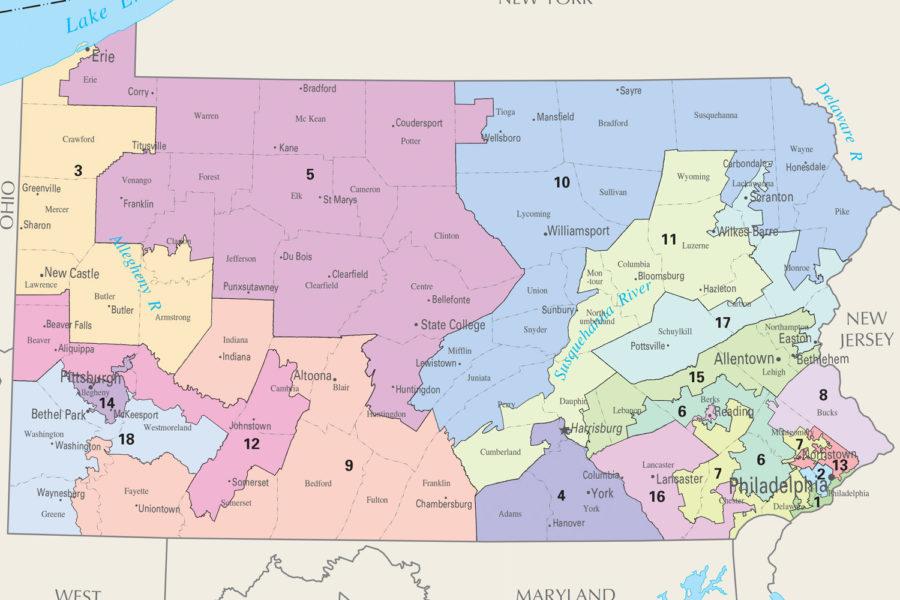As midterm elections loom and Pennsylvanians prepare to deliver their opinion on President Donald Trump’s first two years in office, the Commonwealth’s Supreme Court added to the drama Monday when it ordered a change to the lines of battle themselves: Congressional district borders.
In a long-awaited legal decision, the Supreme Court of Pennsylvania said the current shape of the state’s 18 congressional districts “clearly, plainly and palpably violates the Constitution of the Commonwealth of Pennsylvania.” The court further required that the state government draft and pass new boundaries by Feb. 9 — prior to both the special election to fill the vacant seat in the 18th District, directly to the south of urban Pittsburgh, and the general election for the 17 other district seats this November.
The current Pennsylvania congressional map was originally both drawn up and approved by the GOP majority in the state legislature and Republican then-Gov. Tom Corbett in 2011. Whether or not it was knowingly intended to siphon political strength from the state’s Democrats to Republicans, it’s undeniably resulted in skewed representation since taking effect. And despite arguments against the decision from GOP members in Harrisburg, now is the optimal time to fix that unfair skew.
In Pennsylvania, Republican presidential candidate Trump defeated Democrat Hillary Clinton by a margin of less than 1 percent statewide in 2016. Yet on the same day, races for seats in the House left the state delegation firmly in conservative hands. The GOP won more than two-thirds of Pennsylvania’s seats, leaving Democrats with only five.
While the Supreme Court’s decision might not lead to a perfect solution to the problems of representative government, it’s at least a step in the right direction. Yet some Republicans in the state Senate appear unwilling to let go of the reins of power just yet. State Sens. Joe Scarnati and Jake Corman, who both represent districts near the center of the state, released a statement the same day as the decision protesting how quickly it would take effect.
“The PA Supreme Court has […] set up an impossible deadline that will only produce chaos in the upcoming Congressional election,” they said. “It has elected to give the legislature 19 days to redraw and adopt the Congressional Districts.”
Scarnati and Corman’s complaints should fall on deaf ears. The state legislature had seven years prior to the court’s decision to act on unfair district borders and did nothing. More time is obviously not going to help them make their decision. What’s more, several plans are already in existence that are clear improvements to the current system — including one drawn up by the staff of The New York Times’ blog “The Upshot” in a matter of days.
What’s at issue with the the state legislature’s court-appointed task isn’t so much that they don’t have the resources — they just don’t have the will or the courage to give up political strength. And with the possibility of a Democratic surge this November, perhaps Republicans shouldn’t consider redistricting in their best self-interest.
Fair districts are ultimately beneficial to everyone, and the Commonwealth Supreme Court took a definitive step toward that positive earlier this week. Now it’s up to the GOP to decide whether or not it wants to stand in the way of democracy.



